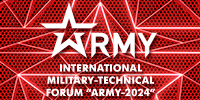The expansion of autonomous European capacities in the field of defense and security has been discussed in the EU for several years. The topic became even more relevant after February 24. Experts of the Carnegie Europe analytical center tried to answer the question of how serious the EU's intentions are in the field of building a European defense and security system.
The Russian-Ukrainian conflict is perceived in the EU as a "tectonic shift in European history,". It has made the long-running discussion about European security a matter of practical significance.
After the start of the Russian "special operation", the EU has already taken a number of important steps in this direction. Experts note the intensification of the supply of military equipment and weapons to Ukraine through the European Peace Facility, a number of agreements on "smarter" investment in defense and the allocation of 2 billion euros for innovation through the EU Defense Innovation Scheme. In addition, in March, the European Council officially approved the EU Strategic Compass, an ambitious EU action plan in the field of defense until 2030, which had been developed for several years.
Separately, there is an increase in defense spending in European countries. The most high–profile case is the creation of a German defense fund of 100 billion euros, which will be used to upgrade the country's defense potential. The Dutch government also approved the allocation of an additional 5 billion euros for defense spending. As the researcher of the security department of Netherlands Institute of International Relations Clingendael Adaya Stoetman writes,
"As a result, many European countries will achieve the NATO goal set in 2014, namely to increase the military spending of the Alliance countries to 2% of GDP, earlier than planned at the beginning of 2022."
Most experts agree that the European Union should play a more significant role in European security issues and have the ability to act independently on NATO. At the same time, they are quite skeptical about the opinion that the current conflict will accelerate the development of appropriate solutions at the EU level.
Commenting on the EU's security steps, the director of the Globsec Policy Institute, Alena Kudzko, writes:
Had these actions been taken a year ago, they would have been touted as a major leap forward. But the situation has changed dramatically—Europe’s marks on defense cannot be measured against its former self but rather the challenge posed by its adversaries.
On the one hand, the potential joining of Sweden and Finland to NATO leads to further "layering" of the EU and the North Atlantic Alliance and opens up opportunities for a more detailed distribution of authorities between the two structures. On the other hand, the EU's contribution to collective security meets several problems.
The main challenge, which many authors point out, is the lack of coordination in the defense sphere. Despite the fact that all EU States take security issues seriously, their efforts are mostly fragmented. This is the result of both historical and geographical features, as well as differences in strategic doctrines and cultures, and threat perception.
In addition, there is a discrepancy as to how best to invest in security. According to Daniel Fiott, Defense and security editor at the EU Institute for Security Studies (EUISS), while some countries agree that security costs should be regulated collectively at the level of EU institutions, others insist that security financing issues should remain the responsibility of states.
But not everyone shares optimism about the future of the autonomous defense and security system of the European Union. A number of researchers believe that the EU's ambitions in the field of "strategic autonomy" are unjustified. It is noted that the EU should focus on other areas, primarily on the economy. According to the coordinator of the Regional Security Program of the Center for Eastern Studies, Justyna Gotkowska, the EU's efforts may include both sanctions pressure and the formation of economic relations, as well as anti-crisis regulation. In addition, the European Union should fully use its "transformative power" – the promotion of European norms and values through the inclusion of countries in the EU, primarily in the Western Balkans. The defense role should remain with NATO, where the EU can only play auxiliary functions.
Researcher and chairman of The Alphen Group Julian Lindley-French also highlights the lack of political will among the Union's leading defense spending countries - France, Germany and Italy. On the one hand, these countries do not feel an immediate threat from Russia for themselves, and on the other hand, they have differences regarding the course of action. It is known that France is most actively in favor of European autonomy in security matters, and Germany consistently relies on partnership within NATO.
As Elisabeth Braw, senior researcher at the American Enterprise Institute (AEI), notes, the problem with European security is overestimated expectations on the part of politicians and analysts.
The problem surrounding “European defense” is also that expectations are constantly set far too high—by politicians and analysts. It’s (still) illusory to think that we would be able to pool these capabilities in a way that somehow complements NATO. The more we talk about “European defense” the more we set our often impressive national efforts up to look like a failure.








